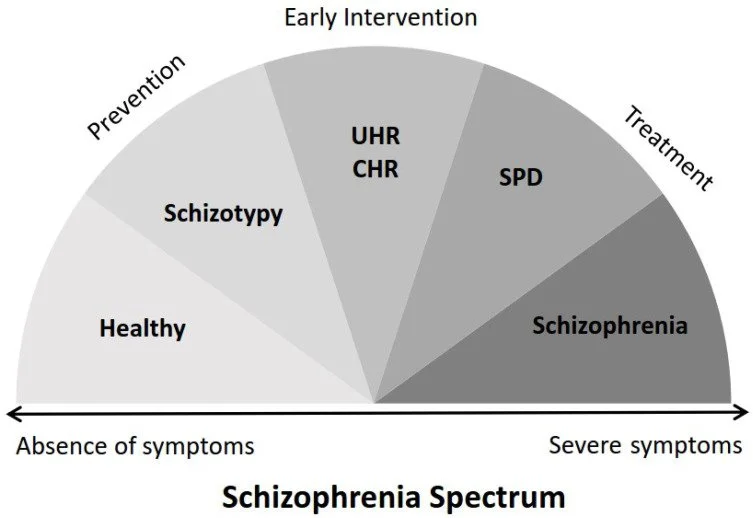Can people with schizophrenia live ‘normal’ lives?
When people hear the word “schizophrenia,” they often picture chaos, voices in one’s head, erratic behaviour, and disconnection from reality. These portrayals, shaped largely by the media, miss the nuances of what it’s actually like to live with the condition. This article takes a closer look at what schizophrenia is, what it isn’t, and whether living a so-called “normal” life is possible with the right support in place.
What is Schizophrenia?
Schizophrenia is a mental health condition, affecting around 24 million people worldwide or roughly 1 in 300 people (0.32%), marked by disorganised thoughts and behaviours, delusions, hallucinations, and blunted or inappropriate emotional responses.
In Singapore, it is the most prevalent psychotic disorder in Singapore, affecting approximately one in 116 people, which translates to around 0.86% of the population, having received a diagnosis at some point in their lives.
The Schizophrenia Spectrum
Granted, there is some truth to these associations, but it is important to understand that schizophrenia exists on a spectrum, depicted in the figure below from a study conducted by Zouraraki et al. (2023).
Healthy
No symptoms. No indicators of psychosis or related traits.
Schizotypy
Personality traits loosely linked to schizophrenia (e.g. odd thinking or behaviour) but no clinical disorder. Focus is on prevention.
UHR / CHR (Ultra-High Risk / Clinical High Risk)
Early warning signs like mild psychotic symptoms or decline in function. Individuals are at high risk of developing psychosis. Focus is on early intervention.
SPD (Schizotypal Personality Disorder)
A personality disorder involving persistent social and cognitive disturbances (paranoia, unusual beliefs), but not full-blown psychosis. Still in the early-to-mid stage, so early intervention is key.
Schizophrenia
Full disorder with sustained psychotic symptoms (delusions, hallucinations, disorganized thinking), which requires treatment.
Can people with Schizophrenia live “normal lives”?
A “normal” life is a rather arbitrary and subjective term to describe one’s way of life. It is important to note that we’re not here to tell you what a “normal life” entails for you! To some, a “normal life” could mean growing up, getting a good job, getting married, having kids, moving to the suburbs, having a two-week holiday once or twice a year etc. To others, a “normal life” could simply be finding joy in the little things in life such as walking, reading etc.
The question of whether individuals with schizophrenia can live “normal lives” is one that often carries significant weight and complexity. While the experience is unique to each person, here's a possible depiction of how someone with schizophrenia can navigate daily life with appropriate strategies and support.
Meet Tanara, a peer support specialist in her 30s who lives with schizophrenia.
She loves R&B music, fashion, and hosting cookouts with family. Diagnosed in her late 20s, she’s built a stable and meaningful life through persistence, treatment, and purpose.
Finding the Right Treatment Made the Difference
Tanara receives monthly antipsychotic injections, a treatment she and her doctor agreed on after weighing its benefits and side effects. It’s helped keep her symptoms under control and has been a turning point in her recovery.
Therapeutic Support and Education Helped Her Rebuild
During her time in a state psychiatric hospital, Tanara took part in therapeutic programs such as group discussions, cooking classes, and sessions about schizophrenia. These helped her understand her condition, identify triggers, and regain confidence in returning to daily life.
From Patient to Peer Support Specialist
With support from her caseworker and nurses, Tanara transitioned from patient to professional. She now works as a certified peer support specialist, guiding others with schizophrenia to set personal goals and believe in their potential.
Support System and Personal Growth
Tanara’s family played a key role throughout her journey, encouraging her to seek help and stay engaged in recovery. She’s also built strong relationships at work and in her community. Today, she lives with her partner and is actively growing her advocacy work.
Tanara’s story shows that recovery is not linear but with treatment, community, and support, a meaningful life is possible after a diagnosis of schizophrenia.
Faiza, whose son has schizophrenia, initiated a C2C (Caregiver-to-Caregiver) programme that raises awareness of mental health issues, particularly within the Malay-Muslim community, and cares for people with mental health issues at a non-profit organisation.
This powerful video showcases the importance of having a strong support system to care for people with mental health disorders, which can significantly improve their livelihood and potentially alleviate their symptoms, contributing to their overall mental wellness.
It is understandable that we may have negative stereotypes of people with Schizophrenia because of social conditioning that is enforced by external factors such as mass media. However, it is key that we approach schizophrenia with an angle of compassion rather than judgement and adopt a growth mindset by continuously educating ourselves on mental health disorders.
To find out more on schizophrenia management and how it can lead to “normal” life for people with schizophrenia, feel free to read this blog!

